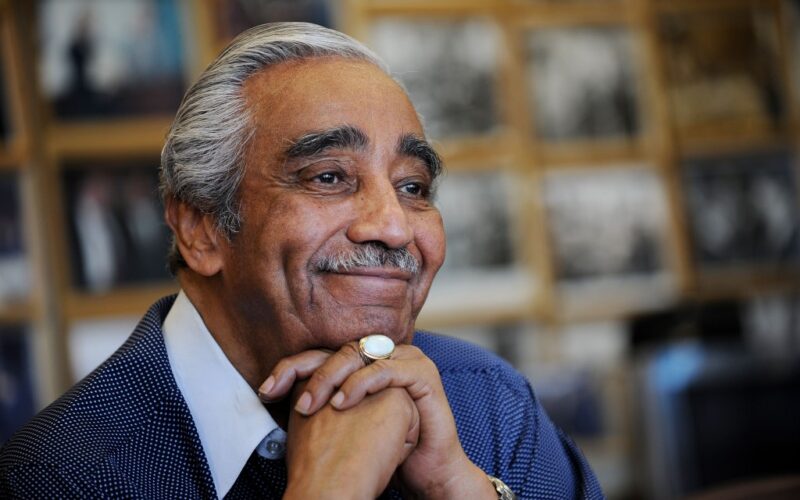On Memorial Day, as our nation reflected on the cost of service and the value of patriotism, we said goodbye to a towering figure who embodied both — Congressman Charles B. Rangel. At 94 years old, Rangel passed into eternity, leaving behind a legacy that is hard to measure but impossible to ignore.
I had the privilege of being one of Rangel’s constituents. In 2010, I was the Republican who ran against him. I wanted to win. I wanted to retire him. I believed I could bring new leadership to Harlem. But even as I challenged him, I knew I was going up against a legend.
Charlie Rangel wasn’t just a congressman — he was a statesman in every sense of the word. His impact stretched far beyond Harlem, far beyond New York — into the very heart of American politics.
Charlie’s story was rooted in struggle and forged by sacrifice. Born in Harlem during the Depression, he was raised by a single mother. He dropped out of high school before enlisting in the U.S. Army, where he would serve with uncommon distinction during the Korean War. At the Battle of Kunu-ri, he earned both a Bronze Star with Valor and a Purple Heart. That day, he would say, “I haven’t had a bad day since.” That perspective — born in fire — defined his life.
After the war, he returned home and used the GI Bill to earn degrees from NYU and St. John’s University School of Law. He became an assistant U.S. attorney, then in 1970, he did the unthinkable — he ran against the legendary Adam Clayton Powell Jr. Few people realize that Charlie’s challenge was encouraged by Republican interests eager to unseat Powell. But Charlie was never anybody’s puppet. He never forgot where he came from. He remained loyal to Harlem and faithful to his roots.
Once elected, Rangel didn’t just represent Harlem — he redefined it. He was a founding member of the Congressional Black Caucus. During 46 years in Congress, he served with influence, purpose, and results. He rose to chair the powerful House Ways and Means Committee and helped shape critical legislation on tax reform, health care, and foreign policy.
His “Rangel Amendment” restricted tax benefits for companies doing business in apartheid South Africa, applying economic pressure that contributed to the fall of that racist regime.
Charlie served in an era when relationships mattered, and political capital wasn’t spent on cable news sound bites. He knew how to get things done. He authored and sponsored more than 40 pieces of legislation yet never needed the spotlight. He was the consummate wingman — always present, always essential, rarely loud.
Very little of consequence happened in Washington without his fingerprints. That kind of leadership — quiet, dignified, and strategic — is rare today.
Of course, his long career was not without controversy. In 2010, he was censured by the House over ethics violations. But Charlie faced it head-on. He stood on the House floor not with defiance, but with dignity. He admitted his faults, held his ground, and continued to serve. His constituents stood by him because they knew he never stopped standing for them.
Charlie Rangel was the last member of Harlem’s famed “Gang of Four,” alongside David Dinkins, Basil Paterson, and Percy Sutton. Together, they changed the face of Black political leadership in New York and beyond.
Charlie mentored countless young leaders—not just in policy but in posture. He showed them how to fight without becoming bitter, how to win without losing your soul.
Charlie wasn’t perfect. But he was faithful. He acted justly, defended the vulnerable, and walked humbly with the awareness of his journey. He was proud of Harlem. Harlem was proud of him. And America is better because he served.
Union Army Lt. Col. Lewis Warner said after the Civil War: “I have ever endeavored to do my duty.” Charlie Rangel lived those words. He knew his flaws. But he never stopped trying to do his duty — to his district, to his country, to his God.
So, as we reflect on his life, let us recommit ourselves to building bridges, not burning them. Let us remember that true greatness is not found in the titles we hold, but in the lives we touch.
Rest in peace, Mr. Rangel. Thank you for showing us how to serve, how to lead, and how to never forget where we came from. Indeed, they don’t make them like this anymore.
Faulkner, a former player for the New York Jets, is the executive director for the Philadelphia Council of Clergy.








